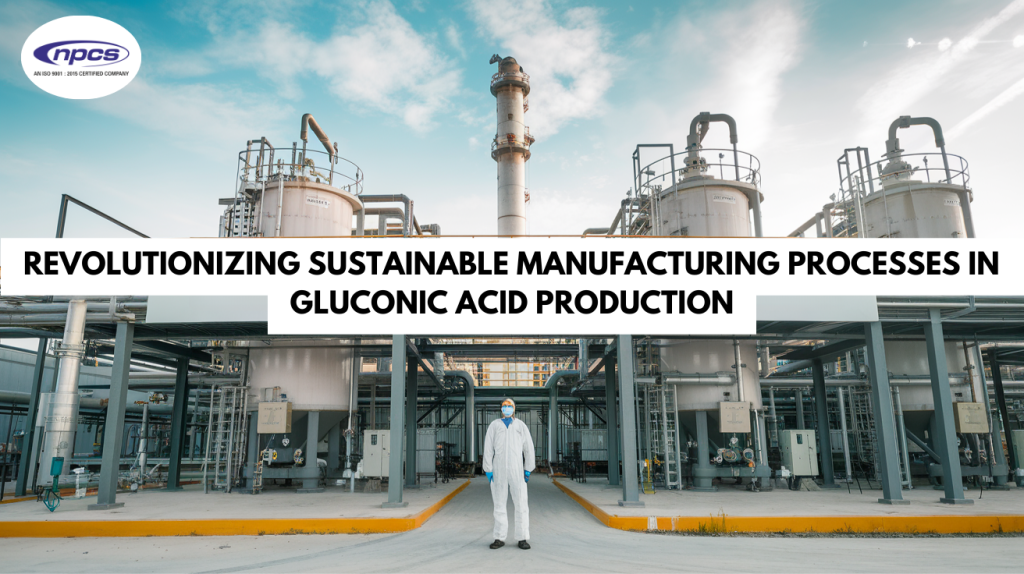There has been a rapid growth in the adoption of the sustainable process of manufacturing in the global arena. Industries across the globe are busy producing environmental-friendly ways of reducing carbon footprints and waste generation. One such innovation is gluconic acid obtained through sustainable potato waste production. This is such a fantastic innovation because that is what benefits the environment and equally brings into the picture something valuable out of wastes. This article provides you with information on revolutionary sustainable manufacturing processes in the gluconic acid industry, with their contributions toward an innovative and more sustainable future.
Related Books: Business books on several industries
What is Gluconic Acid?
Gluconic acid is a naturally occurring organic acid, widely used in various industries including food, pharmaceuticals, and cosmetics. Traditionally, producers create gluconic acid through the fermentation of glucose, but recent innovations in sustainable manufacturing processes have opened up possibilities for producing gluconic acid from the waste of potatoes, which is generally available and remains under-utilized.
Sustainable Manufacturing Processes: A Game-Changer
Sustainable manufacturing processes are those whereby a technique is employed that minimizes negative environmental impacts while not sacrificing the product quality or may be improved further. An instance in gluconic acid production is exemplified through the use of potato waste as a raw material, which basically defines such processes of sustainable manufacturing. Not only does it reduce waste, but also, due to its use, costs the environment a little by utilizing a renewably derived resource normally bound to end landfilled.
Related Business Plans: Business plans on different manufacturing Industries
Why Potato Waste?
There is a more common vegetable that is consumed by many people worldwide than the potato. There will be plenty of waste generated from the production of potatoes. Production waste, mainly potato peels, stems, and other by-products, are dumped as soil pollution. Sustainable manufacturing processes with potato waste can change this waste into a valuable product in the industry, such as gluconic acid. Thus, besides reducing waste, it provides a much greener alternative than the conventional production methods.
The Role of Biotechnology in Sustainable Manufacturing Processes
Biotechnology also serves a great deal in helping develop sustainable manufacturing processes. With the conversion of potato waste into gluconic acid, microorganisms are responsible for the conversion of starches and sugars that they hydrolyze from heterotrophic potato wastes into gluconic acid. As a result, this process does not harm the environment because it requires fewer resources and emits less harmful by-products than conventional chemical methods.
Project Reports: Manufacturing Business Project Reports
Benefits of Sustainable Manufacturing Processes in Gluconic Acid Production
- Waste Reduction: Since the potato waste becomes the raw material, industries can avoid food waste, which is probably one of the largest environmental issues.
- Reduced Carbon Footprint: The sustainable manufacturing processes in gluconic acid production from potato waste emit fewer greenhouse gases than conventional ones.
- Efficient Resources Use: It ensures the efficient use of resources because it uses a by-product meant for disposal as its primary raw material.
- Economical Production: The cost of producing gluconic acid would be very low and thus affordable by the manufacturers because the potato waste is readily and cheaply available.
Also Visit: Market Research Reports
The Future of Sustainable Manufacturing Processes in Gluconic Acid Production
There are a lot of prospects for sustainable gluconic acid production processes. Advancing technology will soon present industries with more efficient channels to convert waste from potatoes into valuable products. Indeed, such innovation might be a pioneer for other industries wishing to adopt a similar model in order to reduce wastes and promote sustainability in diverse sectors.
For any Business related Query: Visit NPCS
Challenges and Solutions in Sustainable Manufacturing Processes
While producing gluconic acid from potato waste can be very sustainable, researchers still need to address some challenges. One of the most important of all possible challenges is that of scalability. The technology has proven efficient in small-scale applications, but going overboard in scale is not affordable in infrastructure and research.
To tackle this significant challenge, industries and governments will need to fund research and development efforts to make sustainable manufacturing processes available and economically feasible. In addition, coalitions with the agricultural sector can ascertain the necessary amount of waste potato generation, thus developing the process into a more sustainable one in the long term.
For Business related Videos: Visit Entrepreneur India
Conclusion
Perhaps the best case of a sustainable manufacturing processes industry while still benefiting the environment is the production of gluconic acid from potato waste. It is the taking advantage of waste products that reduce footprints and carbon emissions so as to make this brilliant process turn out a more economically rewarding future. As technology advances, we will see more industries commonly adopting these processes as well to deliver a better segmented and multisectoral economy.

